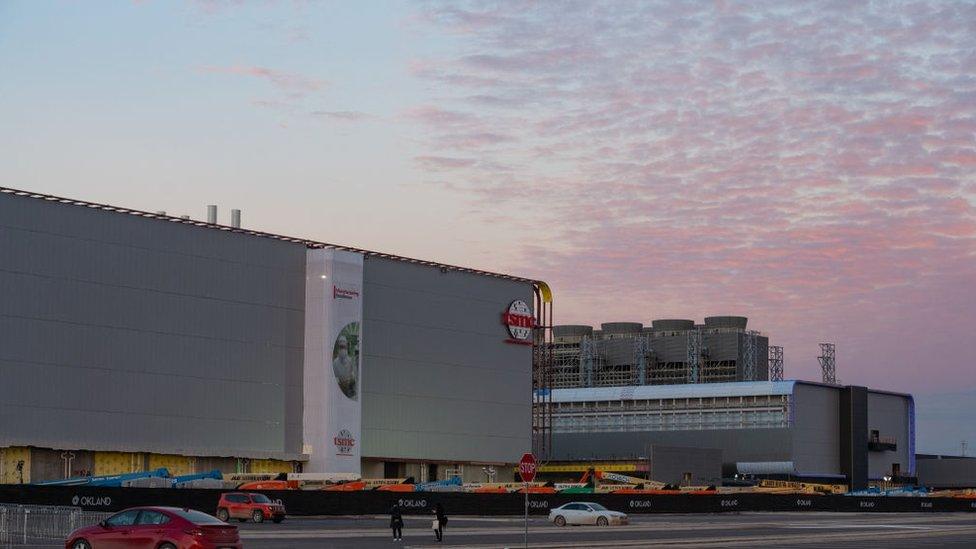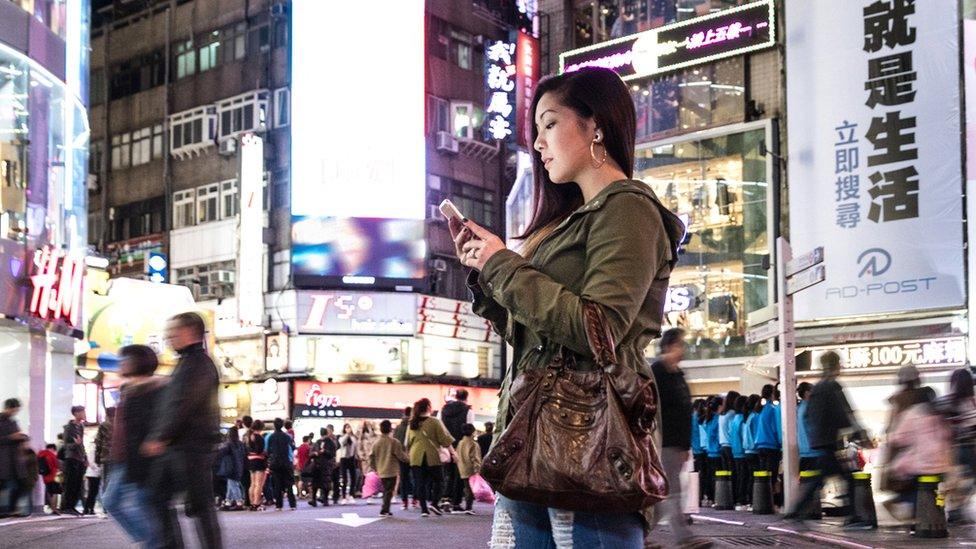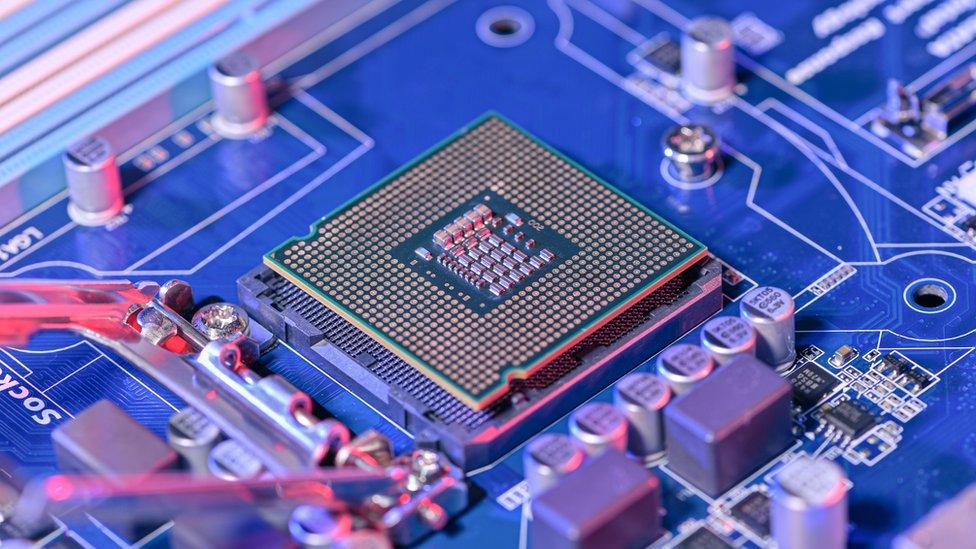TSMC wins subsidies to expand US chip manufacturing in Arizona
- Published

The TSMC Arizona facility under construction in 2022
Chip giant Taiwan Semiconductor Manufacturing Company (TSMC) has agreed to build a third factory in Arizona, raising its total investment in the United States from $40bn (£32bn) to $65bn (£51bn).
The US government has committed $6.6bn in subsidies and $5bn in possible loans to support the plans.
The deal is part of an effort to boost semiconductor production in the US.
The US is currently highly dependent on Asia, especially Taiwan, for chips.
But it has been pushing to expand local supply amid increased tension with China, citing economic and national security risks.
In 2022 the country approved more than $50bn in grants to support manufacturing and research for the industry.
The Commerce Department has predicted that the investments will expand America's share of production of the most advanced chips from zero to about 20% by 2030.
Laurie Locascio, Under Secretary of Commerce for Standards and Technology, said the latest support for TSMC marked an "inflection point... that would restore our nation's leadership in an industry that is foundational to the US and global digital economy".
TSMC, headquartered in Taiwan with a large presence in China, is the world's largest maker of semiconductors with clients including Apple.
It announced its first US factory in 2020. That facility is expected to open next year and TSMC said a second fab at the complex would start making chips by 2028.
The third facility, announced on Monday, is expected to open by the end of the decade.
The Commerce Department said the deal would create at least 6,000 direct high-tech jobs, 20,000 in the construction of factories, and tens of thousands of indirect jobs.
TSMC has already pushed back production timelines, because of a shortage of skilled labour and some questions around US government incentives.
The investment comes as US Treasury Secretary Janet Yellen wraps up a visit to China, where she has been trying to ease tensions between the two giants, which have flared over issues such as semiconductors and green technologies.
Ms Yellen said she thought the relationship had improved, while continuing to voice concerns about Beijing economic policies that were also a focus under former President Donald Trump.
She spoke out against Chinese government support for companies making electric cars, solar panels and other projects, though she stopped short of threatening new tariffs.
The US currently imposes steep import duties on electric cars made in China, a tax other places, including Europe and the UK, are debating.
Chinese officials said that their companies' success was due to strong supply chains and decried the "escalation of green protectionist measures by some developed economies", according to Reuters.
Stephen Olson, a former US trade negotiator and senior adjunct fellow at the Pacific Forum, told the BBC that both countries had an interest in "trying to improve the mood music" and signalling "to the rest of the world that the relationship was being managed".
But he said nothing material will have changed as a result of the talks.
"China will continue to believe correctly or incorrectly, that the United States is determined to block its 'peaceful rise', and the United States will continue to believe correctly or incorrectly, that China engages in a host of predatory economic and trade policies, which threaten the rules-based global system," he said.
"Those were the perceptions that were entrenched before the meeting started. And when Janet Yellen gets on the plane and flies back to Washington, I'm afraid those perceptions will remain entrenched."
Related topics
- Published17 December 2023

